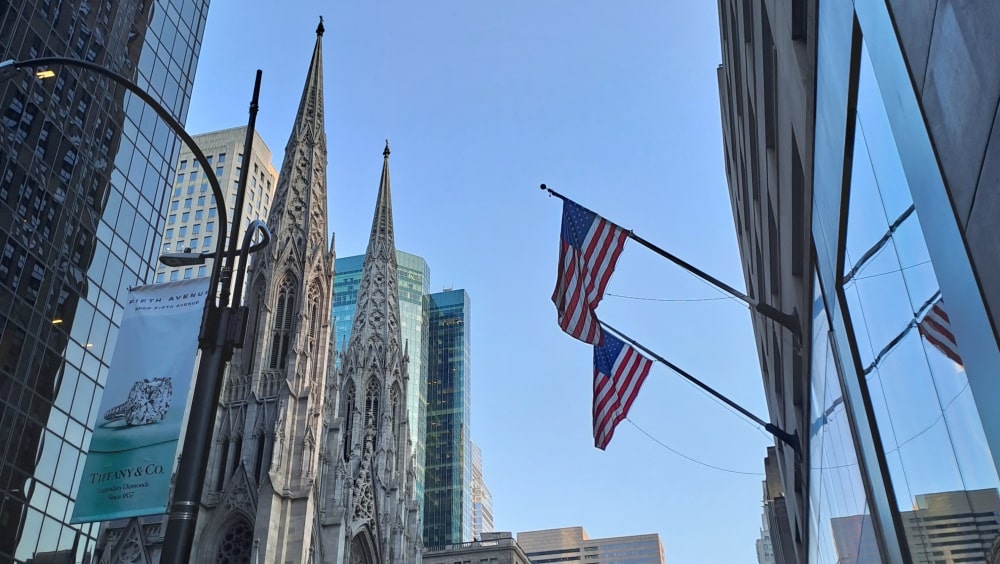People who declare themselves as non-believers face greater prejudice in American society than, among others, homosexuals, Jews, or African-Americans, according to an analysis conducted by a scientist from the University of Massachusetts Lowell. Atheists are a group especially mistrusted by Christian nationalists, who closely associate American national identity with the religious identity of Christians. Rising prejudices may result from a sense of threat associated with a drop in the number of people holding conservative views and a simultaneous increase in the popularity of atheistic attitudes.
“Antipathy towards atheists mainly stems from societal mistrust towards them due to their lack of belief in a higher power and consequently the lack of control of this higher power over their moral or immoral behavior. Therefore, unlike other minority religious groups, atheists may face questioning and undermining of their morality and credibility”, comments for Newseria Innovations agency Dr. Fanhao Nie, Assistant Professor of Sociology at UMass Lowell.
It turns out that atheists remain one of the most discriminated groups in the United States, despite a dynamic increase in their numbers over the past decade. They face greater animosity from the American public than many other marginalized groups such as Muslims, Jews, African-Americans, or homosexuals. Interestingly, in a survey conducted in 2014 among adult Americans, being an atheist was considered the most undesirable trait of a presidential candidate.
“I decided to study the relationship between Christian nationalism and attitudes toward atheists. In particular, I wanted to investigate how public opinion perceives atheists when Christian nationalism increasingly dominates their social environment. Finally, considering that there is a correlation between Christian nationalism and racist views and the notion of white supremacy, I wanted to see how racial minorities react to atheists when their communities are dominated by Christian nationalism”, explains Dr. Fanhao Nie.
For this purpose, the sociologist analyzed the results of the 2017 Baylor Religion Survey, which was attended by a representative sample of adults living in the USA. As he points out, the burgeoning phenomenon of Christian nationalism, especially among religious and political conservatives, prompted him.
“Christian nationalism can briefly be defined as a set of beliefs that link American national identity with Christian religious identity. In practice, Christian nationalism may support the public display of Christian symbols in everyday life and the inclusion of Christian values in significant aspects of public policy. Those who are not Christians may be considered as not belonging to the American nation and viewed as foreigners”, the sociologist from UMass Lowell argues.
In the expert’s opinion, the election of Donald Trump to the presidency could have contributed to popularizing this phenomenon.
“There are many factors that may be responsible for the development of Christian nationalism. I think one of them may be conservatism. As the number of people not belonging to any religion and the percentage of white people in the total US population decrease, white, conservative Christians may feel threatened and increasingly fear the loss of their dominant position and the erosion of traditional cultural values. In defensive measures, white, conservative Christians may feel mobilized by the concept of an ideal America and convert their beliefs into political action to defend this concept”, explains Dr. Fanhao Nie.
Based on the declarations from the study, the sociologist concluded that the higher the level of Christian nationalism in an individual, the more negative their views on atheists. However, such a correlation was not found at the state level. In states where Christian nationalism was stronger, black citizens were less prejudiced against atheists compared to white citizens. The study also shows that when Christian nationalism – an ideology promoting the idealistic image of “white” America and justifying racial injustice – increases at the state level, black people may oppose it, even adopting what it opposes.
“In the USA and the world, many social movements and forms of activism related to religion encourage their members to be open to other religious attitudes, not to reject them. When religion is used to highlight differences between groups, to stigmatize or punish people perceived as others, there is a higher probability that religion will lead to a higher level of prejudice”, the expert observes.
According to the researchers, observations made in American society may shed light on phenomena occurring in other parts of the world, including Eastern Europe. Countries like Poland are struggling with a growing lack of tolerance towards refugees, religious minorities, and other minority groups. The rise of populism is also accompanied by religious changes.
“I hope that this research will encourage more researchers to broaden the ongoing discussions about Christian nationalism, going beyond the social context of the USA,” says the sociologist from UMass Lowell. “Is there a Polish version of Christian nationalism? To what extent does Polish Christian nationalism influence the opinions of the Polish society about the influx of refugees and representatives of minority religions to Poland? In terms of social impact, in what ways does Polish Christian nationalism resemble American Christian nationalism, and to what extent is it different from it?”
